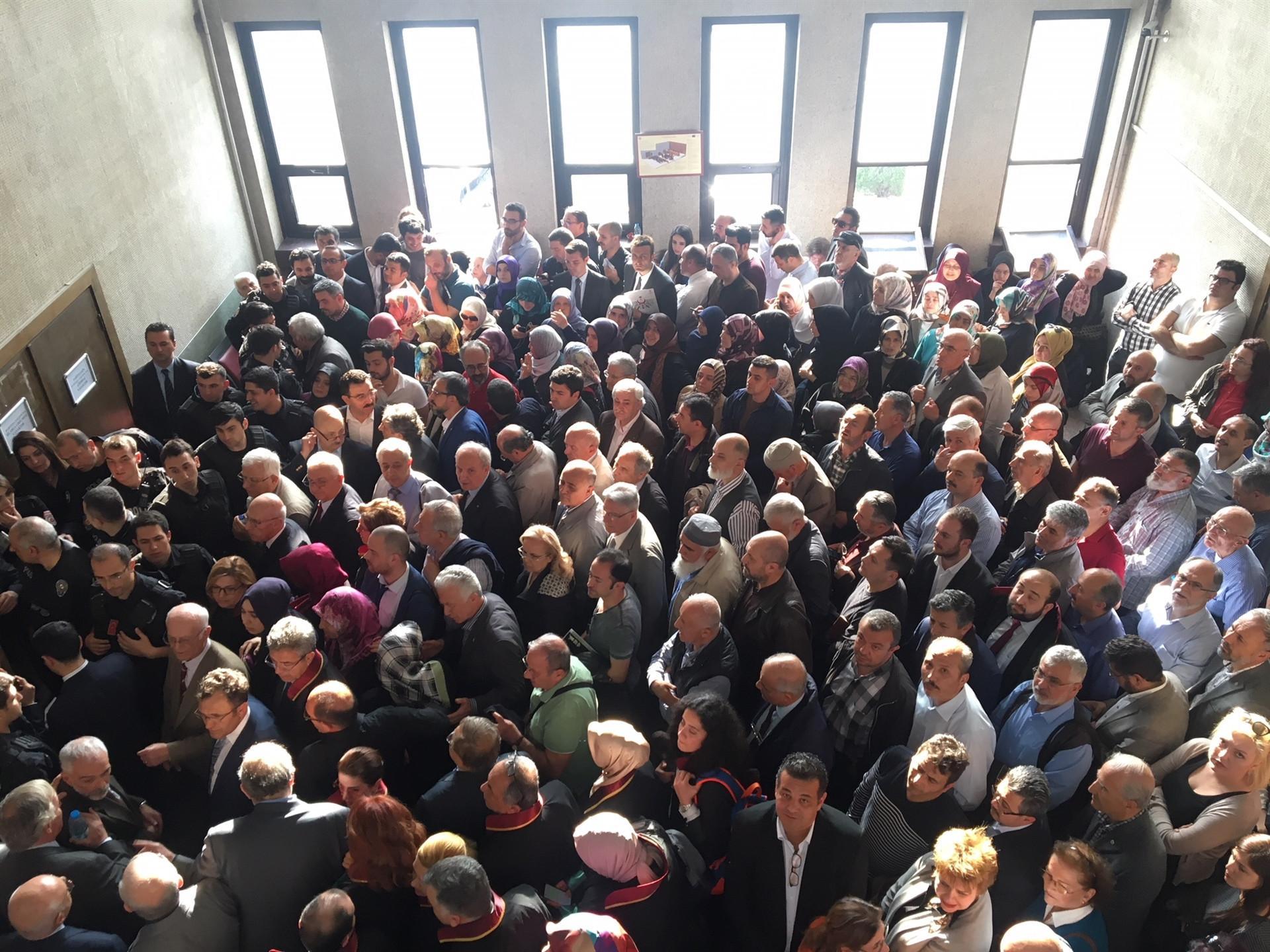
An Ankara court sentenced on April 13 a total of 21 suspects, including a former chief of general staff and his deputy, to life in prison for their roles in the 1997 military memorandum, also known as the “postmodern coup.”
However, the court did not order their arrest due to their old age, instead ruling for judicial control and banning them from traveling abroad.
The court also ruled to acquit 68 others, while charges against four suspects, who died during the judicial process, were dropped.
Retired general İsmail Hakkı Karadayı, 85, who served as chief of general staff between 1994 and 1998, and deputy chief of general staff at the time, Çevik Bir, were among the suspects sentenced to life in prison.
Both former soldiers appeared before the judge at the sentencing hearing.The suspects were accused of “forming criminal associations to overthrow the government of the Republic of Turkey.”
Some 103 suspects were initially earmarked in the trial’s 1,300-page indictment, though the prosecutor had requested the acquittal of 39 defendants.
The case tackles the infamous military intervention of Feb. 28, 1997, often described as a “postmodern coup,” which did not result in direct military rule but forced late ex-Prime Minister Necmettin Erbakan to resign after the National Security Council (MGK) issued a memorandum, commonly referred to as the 1997 military memorandum.
The memorandum relayed decisions reached by Turkish military leaders at a MGK meeting on Feb. 28, 1997, which initiated the Feb. 28 process that precipitated the resignation of former Prime Minister Necmettin Erbakan from the Welfare Party, ending his coalition government.
The bloodless “postmodern” coup is famous for having deposed the head of government after tanks paraded outside Ankara and Erbakan was given an ultimatum.
Because the Erbakan-led government was forced out without the dissolution of parliament or the suspension of the constitution, the event was labeled a “postmodern coup” by members of the military involved in the process.
Erbakan, the conservative politician who led the coalition government, was forced to sign into law the army’s decisions on certain issues, such as a ban on headscarves for public service officials and the shutting down of Quran training schools. The military also ramped up pressure on Erbakan and his conservative Welfare Party over “secular concerns.”
Erbakan resigned four months later, while his Welfare Party and its successor the Virtue Party were both banned by the Constitutional Court in Jan. 1998 and June 2001 respectively. To enforce the Feb. 28 MGK decisions, General Bir founded and chaired the “Batı Çalışma Grubu” (West Study Group).
Current President Recep Tayyip Erdoğan was involved in politics under Erbakan’s party and was elected as Istanbul mayor in 1994.
In 2013, Karadayı and Bir faced charges of helping to overthrow the Turkish government by force, but were later released under judicial control. Another four defendants have died since the court case began in 2013.